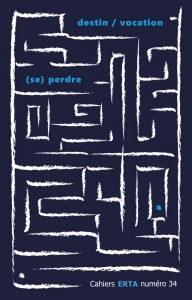Perdus entre l’Ancien Régime et la Restauration. Revenants, politique et réalisme dans Le Centenaire et Le Colonel Chabert de Balzac
Lost between the Old Regime and Restauration. Revenants, politics, and realism in Balzac’s Le Centenaire and Le Colonel Chabert
Author(s): Michele MorselliSubject(s): Language and Literature Studies, Studies of Literature, French Literature, Sociology of Politics
Published by: Wydawnictwo Uniwersytetu Jagiellońskiego
Keywords: Balzac; centenaire; Chabert; realism; supernatural; Napoleon; politics
Summary/Abstract: The article aims at suggesting the role of the Napoleonic supernatural in Balzac’s youth novel Le Centenaire (1822) as a counter-discourse to – and thus a locus of negotiation for – his later poetics of Realism. The investigation is held through a socio-poetical, close-reading based analysis of the revenant theme in both Le Centenaire and Le Colonel Chabert (1832-1844). First, the well-known political nature of Chabert as a revenant is associated to Bérigheld as his binary opposite: if Chabert embodies the uncanny persistence of the Empire during the Restauration, the centuries-old sorcerer who haunts Tullius, a young Napoleonic general, symbolizes Tullius’ monarchist temptation during the Empire. Nevertheless, the supernatural powers Tullius receives from Béringheld can be associated with the mythological features the Napoleonic soldiers accorded to their Emperor. If Chabert represent a counter-discourse to Tullius’ supernatural abilities, Balzac’s realism in the Comédie humaine can thus be considered as a reversal of the Napoleonic myth, so rooted in the authors early years.
Journal: Cahiers ERTA
- Issue Year: 2023
- Issue No: 34
- Page Range: 9-33
- Page Count: 25
- Language: French

